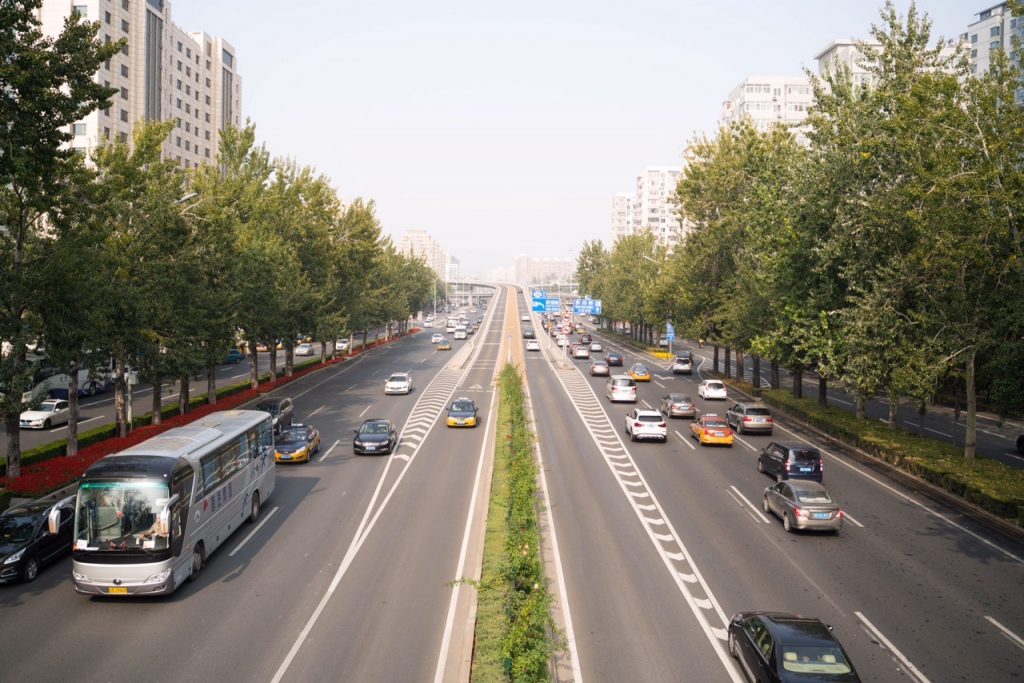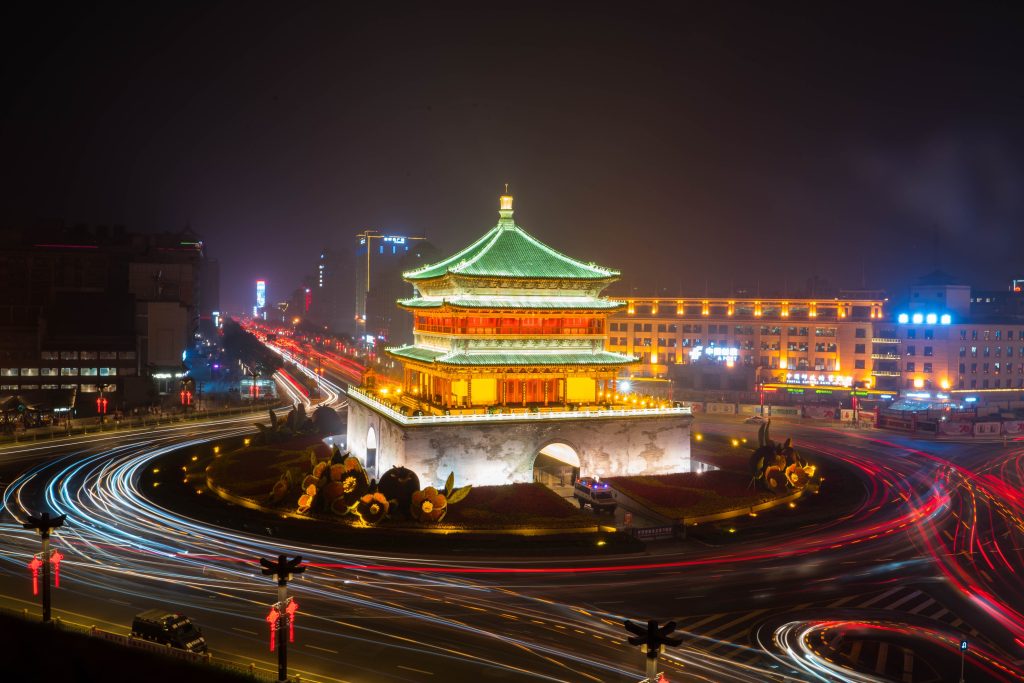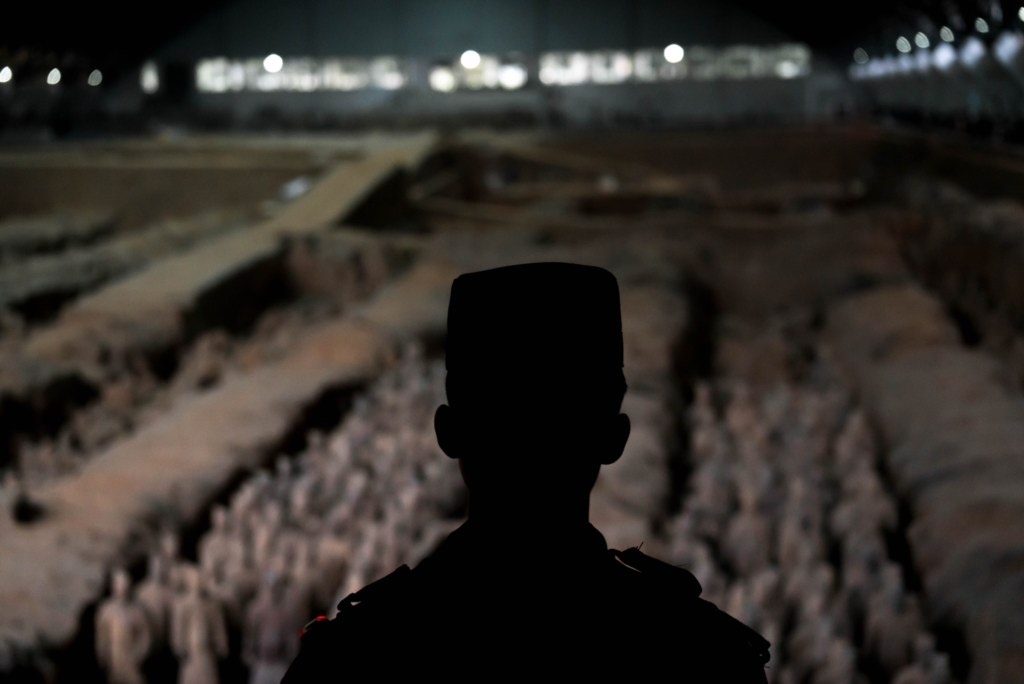OK But Has Beijing Turned Me Into a City Person?
A few blog posts back, Patric wrote about how he is a self-identified city person. Alternatively, I have always self-identified as a non-city person. And in a big way. Two years ago, after studying abroad in Iceland for a month, a country with three times as many sheep as people, I stopped by London for a quick visit before heading home. What was supposed to be a week-long stay quickly turned into just a weekend visit. After being completely overwhelmed by the bustling city I bought a cheap flight to Ireland to seek refuge for a few days. So, you can imagine my apprehension towards living in Beijing for a whole month, a city three times the size of London.
But! To everyone’s surprise I am not only having a good time in Beijing, but I am thriving! And dare I say it – I think Beijing might be turning me into a city person.
China’s capital is unlike anywhere I have ever been before. The subway system may best encapsulate my fascination with Beijing.
In the past 20 years President Xi has invested in the city’s infrastructure in sweeping ways, turning Beijing into what is called a “mega city.” The core of the city remodel is the subway system which can get people from nearly anywhere within the city limits with ease. The subway is safe, clean, and quiet. At every entrance, riders must go through a brief security checkpoint, a miniature version of airport security. The stations and trains are spotless. Food and drinks are not allowed in the system and city employees constantly patrol stations with brooms and dustpans picking up any scraps that have been left behind. All is quiet while on the train. Even during rush hour when people are packed shoulder to shoulder, the only sound is the train cruising along the tracks. People keep to themselves and get to where they need to go quickly and comfortably. It feels nearly utopian compared to the loud and often dirty subway systems that are scattered around the United States.

This city has captivated me in ways that I still don’t understand. We are now in the middle of our last week in China and just as expected, it has gone by in the blink of an eye. When some of us returned from Shanghai last week it hit me that our time in Beijing was coming to an end and I was immediately filled with anxiety that I will not have time to see everything that I hoped to before we leave. On many of our shorter visits, such as our week in Egypt and India, I have felt like a mere fly on the wall while a tour company packs as many site visits into our agenda as possible in a quick five or six days. For me, these smaller stays have almost felt like going through the motions of physically being in these countries while not having the time to get to know it. That’s why these month-long stays are so important to me. At our longer stays we have the opportunity to make new friends, navigate the city on our own and become accustomed to the culture for at least a little while. But of course, when you are in a city like Beijing, you can’t possibly see all that’s out there in one month.
Our co-leader on this program, Joel, put me somewhat at ease after discussing my struggles with time and place. Putting things into a perspective that I would certainly understand, the Northfield High School principal equated the end of our month in China to this year’s Minnesota Twins historic season that ended too soon. The Twins put on a show for fans this year, breaking the record for the most home runs in a single season and winning the division for the first time in what felt like forever. The team had an electric season all summer long only to be swept by the Yankees in the first round of the playoffs: a fate that has met the Twins too many times before. Joel told me that he is trying to remember the season for how fun the ride was, not how heartbreaking and frankly inevitable the ending was. In this roundabout way Joel was saying that when closing out our time in China we should remember and be thankful for all that we’ve been able to do and see and not focus on what we didn’t have time for. I’ll admit, this was a stretch, but to this life-long Minnesota sports fan, Joel knew right where to hit me. I am incredibly thankful for this opportunity to take a lap around the globe with people that I have come to love. We can’t see it all, but we sure have seen a lot. Even in the past few days.
The past week we’ve packed a whole lot into our schedule, beginning with another visit to a Chinese school. An important piece of studying education in global contexts this semester is school visits where we have the opportunity to see how students and teachers operate on a class to class basis within the country’s educational system. This particular school that we visited was housed in a structure that was originally built as the main tennis stadium for the 2008 Beijing Summer Olympics. During a break in the day we even had the opportunity to play on the center court which is something I will remember forever. After the visit we went to Olympic Park, the hub for the 2008 summer games and the future center of the action for the games’ return to Beijing in 2022.
After a brief visit to where I watched Michael Phelps make history on TV as a kid, we left China’s capital for our last weekend trip in China, this time to one of the country’s most historic cities, Xi’an. We arrived groggy and tired after our thirteen-hour overnight train, and in classic Global Semester fashion, we hit the ground running with an immediate tour of the Xi’an city wall. The massive stone wall which surrounds the center of the city would have taken four hours to walk around completely, so some of us opted for tandem bicycles instead which only took two hours and additionally provided all sorts of thrills. The phrase “it’s just like riding a bike” doesn’t quite apply to riding a tandem bicycle on top of an uneven ancient stone wall.

Our visit to Xi’an provided us with opportunities to see other historic and cultural sites including the legendary Terra-Cotta Warriors and sites and neighborhoods that I had previously known nothing about, such as the Xi’an bell tower and the city’s Muslim Quarter where students explored brightly lit alleys and tried street food for both of our Xi’an dinners.

This is what makes up what Joel would call the Twins’ 2019 regular season. Even though the Yankees are looming as our time in China comes to a close, I am thankful for the time that we have had in Beijing and all the other corners of this country that trains and busses have taken us to.
I couldn’t write this post without at least mentioning what we are learning within the classroom. One important and relevant topic that we have discussed in our Political Economy course at Capital Normal University is how much the Chinese know about the United States, versus how much United States citizens know about China.
I’m talking about what we know beyond stereotypes and propaganda that we have subconsciously been receiving our entire lives. In regard to cultural awareness and history, U.S. citizens, myself included, are incredibly far behind the Chinese as far as knowledge of the opposite country goes. People here are well in touch with American culture and history. They watch our TV and movies, they know our history, and they understand their country’s relationship with ours.
To return to the Beijing subway system, a few days ago I took a trip back to an antique market. On the train home I sat next to a young woman and couldn’t help but notice that she was reading a United States history book. The book was dual language, the left page was English and the right Chinese. While reading, she diligently annotated the text and I saw that she had underlined the words, “Thomas Jefferson”, “slavery”, and “Sally Hemmings”. On another page I noticed that she underlined the phrase “the Electoral College”. I was absolutely floored. This woman was not only learning about U.S. history, but was studying things as specific as Sally Hemmings and the Electoral College. It took me coming all the way to China and specifically studying the country’s political economy in a university setting to actually understand Chairman Mao’s significance to China. Yet this woman was casually reading up on people and topics that a surprising number of United States citizens know little about. In my life I have been more ignorant of the world around me than I would like to admit, and after talking to many of my classmates I know I am not alone in this thought.
We need to do a better job of looking outward instead of inward. Whether Americans like it or not China is now a world superpower and it’s time we educate ourselves on their society as they have with ours.
This is easier said than done; again, it took me living in the country’s capital while studying its political and economic system to put China on my radar in a serious way. But if the woman on the subway can educate herself on slavery in the United States then we can at least utilize our internet freedom to google Chairman Mao’s Cultural Revolution, the Tiananmen Square massacre, President Xi’s Belt and Road Initiative, and the current situation in Hong Kong.
So, has Beijing made me a city person? I’m not quite sure yet. Maybe after our next month long stay in Buenos Aires, another massive city, I’ll have an answer. But for now I can certainly say that Beijing has captivated me in a way I never expected.
— Johnny Goodson ’20
You must be logged in to post a comment.